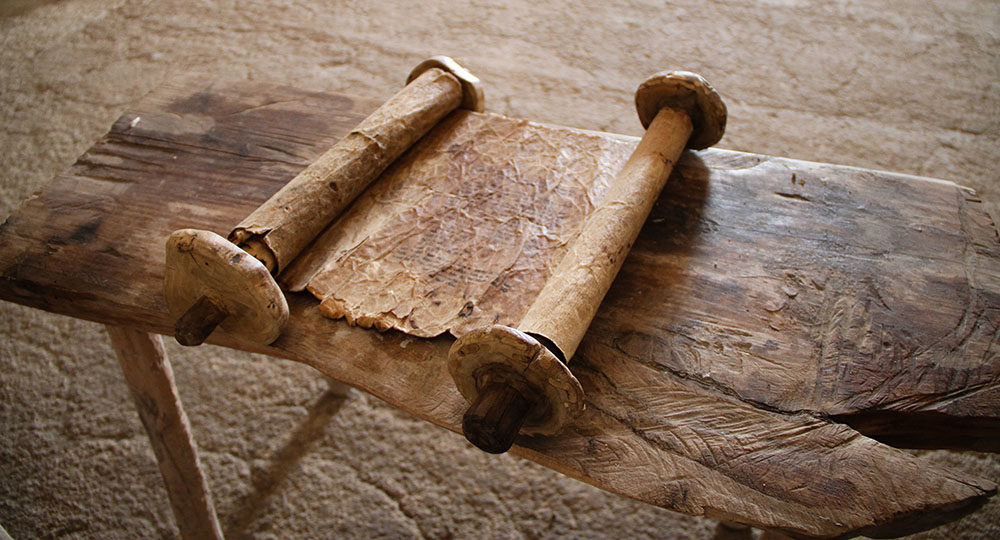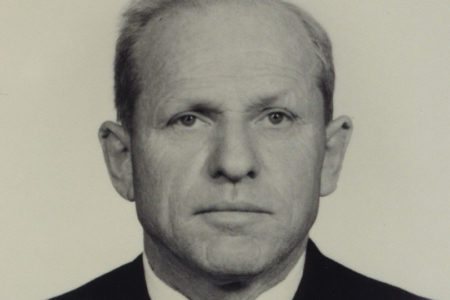Isaiah 53 and the Messiah of Israel Part Three
Editor’s Note: God is Holy. He cannot allow sin in His presence. But God also loves you. So He did the unthinkable: He became a sacrifice and paid for your sins Himself. All He asks now is that you believe, and He will remove your sin and clothe you with His righteousness. “This is all New Testament teaching,” you say. Yes. But it did not originate in the New Testament. It was recorded first in the Jewish Scriptures. This article concludes our series on Isaiah 53, the Servant of the Lord.
In Isaiah 53:8 the prophet spoke of the distorted trial held for the Servant of the Lord and of His death: “He was taken from prison and from judgment, and who will declare His generation? For He was cut off from the land of the living; for the transgressions of My people He was stricken.”
There was no one to stand in His defense or complain about His unjust trial (Mt. 27:1–26). The high priest and Jewish leaders were corrupt and plotted against Jesus because He exposed their great distance from God. Even the Gentile Roman ruler Pontius Pilate knew they had brought Jesus to him and accused Him out of envy (v. 18).
Daniel the prophet foretold the Messiah’s death:
“Messiah shall be cut off, but not for Himself” (Dan. 9:26). The expression cut off clarifies that the Messiah would not die of old age. He would be slain by an act of violence that would cut Him off from the land of the living.
Daniel also noted the date. A careful calculation leads to the month of Nissan A.D. 32 (vv. 24–27). This prophecy was fulfilled completely through Jesus Christ who was cut off from the land of the living in Nissan (Passover) A.D. 32.
His Vicarious Death
The Servant of the Lord did not deserve the death penalty. He bore His people’s sins upon Himself and took their punishment. He paid for their sins—for all of humanity’s sins, in fact—with His life. But this was the only way He could provide everlasting life.
In verse 9 Isaiah described the Servant’s burial: “And they made His grave with the wicked—but with the rich at His death, because He had done no violence, nor was any deceit in His mouth.”
The Servant of the Lord was executed as a criminal, but He was buried in the grave of a rich man.
Why? Because He did not sin. Isaiah described Him as the perfection of wholeness and purity, the Lamb of atonement. Yet Isaiah chapter 1 speaks at length of Israel’s sinfulness: “Alas, sinful nation, a people laden with iniquity, a brood of evildoers, children who are corrupters! They have forsaken the LORD, they have provoked to anger the Holy One of Israel” (v. 4).
And what is said of that generation of Abraham’s children could also be said of the millions of Gentiles who lived in the darkness of rejecting the God of Israel and the coming Messiah.
Jesus was crucified between two criminals. Crucifixion was considered an especially humiliating and contemptible death, suitable for the lowest of men. But after He was lifted off the cross, His body was laid in the grave of a rich man, Joseph from Arimathea (Mt. 27:57–60; Jn. 19:38).
His Vicarious Suffering
Isaiah 53:10–12 describes the Servant of the Lord’s suffering and death:
Yet it pleased the Lᴏʀᴅ to bruise Him; He has put Him to grief. When You make His soul an offering for sin, He shall see His seed, He shall prolong His days, and the pleasure of the Lᴏʀᴅ shall prosper in His hand. He shall see the labor of His soul, and be satisfied. By His knowledge My righteous Servant shall justify many, for He shall bear their iniquities. Therefore I will divide Him a portion with the great, and He shall divide the spoil with the strong, because He poured out His soul unto death, and He was numbered with the transgressors, and He bore the sin of many, and made intercession for the transgressors.
Why did the Lord want His Servant to suffer so? The answer is given in the same verse: “When You make His soul an offering for sin, He shall see His seed, He shall prolong His days, and the pleasure of the Lᴏʀᴅ shall prosper in His hand.”
The word asham in Hebrew, translated as “offering,” actually means “trespass offering” (Lev. 5:15; 6:5; 19:21). Thus the Servant of the Lord died as a trespass offering for sins, a pleasing sacrifice to the Lord. And whoever accepts His death as such will be greatly blessed.
His Glorious Resurrection
Isaiah said the Servant of the Lord “shall see His seed, He shall prolong His days, and the pleasure of the Lᴏʀᴅ shall prosper in His hand” (v. 10).
This verse would be fulfilled after the Servant’s death. Hence He must rise from the dead.
Thus Isaiah taught that the Servant who died as a sacrifice in order to forgive us for our sins would rise from the dead to see the blessed outcome of His atonement. This outcome would be revealed in the lives of those who are faithful to Him (“see His seed, He shall prolong His days”). These are the people who accept Him as their Savior from sin and as their Lord.
The Messiah’s suffering, pain, infirmities, and death were all part of God’s wondrous plan to redeem mankind.
God can provide atonement for our sins and give us everlasting life only because of the blood sacrifice of Jesus Christ (1 Cor. 5:7; Rev. 13:8).
The Servant of the Lord will live forever, and every-thing He does will prosper. Furthermore, Jesus promises that believers in Him, God’s children, will be joint heirs with Him. Therefore, whatever is said about Jesus relates also to those of us who believe in Him (Jn. 1:12; Rom. 8:17).
God Is Satisfied
In verse 11 Isaiah continued to describe how pleased the Lord is with the works of His servant: “He shall see the labor of His soul, and be satisfied. By His knowledge My righteous Servant shall justify many, for He shall bear their iniquities.”
The Servant’s work bore fruit. It was not accomplished for nothing. The word satisfied indicates completeness and fullness. There is no need for anything further. The Servant of the Lord’s work has brought satisfaction. It is perfect.
Then Isaiah emphasized the importance of the Servant of the Lord: “By His knowledge My righteous Servant shall justify many.”
The Servant is the only person who can justify us and acquit us from guilt before the Lord. How does He do it? “For He shall bear their iniquities.” He carried our guilt on Himself, so we can stand before the Lord blameless and innocent: “For He made Him who knew no sin to be sin for us, that we might become the righteousness of God in Him” (2 Cor. 5:21; cf. Rom. 5:19).
Whoever puts on the righteousness of Jesus is counted no less righteous than Messiah Jesus Himself in the sight of the Lord.
What must you do to partake in this great privilege? You must believe that the Servant of the Lord, Jesus Christ, is the perfect Sacrifice who carried your sins upon Himself and surrender your life to Jesus. True believers learn God’s Word and allow it to penetrate their hearts. A genuine believer is a dwelling place for the Spirit of God who works through us and helps us serve the Messiah and others.
Isaiah 53:12 continues with the idea of rising from the dead:
Therefore I will divide Him a portion with the great, and He shall divide the spoil with the strong, because He poured out His soul unto death, and He was numbered with the transgressors, and He bore the sin of many, and made intercession for the transgressors.
The Servant of the Lord was prudent and completely fulfilled God’s will. Therefore the prophet described His victory as that of a king at war. In ancient times, a victorious king took all the spoil and divided it as he pleased to his faithful subjects. The Servant of the Lord will do the same. The Messiah will divide the spoils of His Kingdom with those who love Him when He returns to reign for 1,000 years (Ps. 2; Isa. 2; Jer. 23:5–6; 33:14–16; Dan. 7; Mic. 4:1–8; Rev. 20:4, 6; 22:5).
Why did the Servant of the Lord win this great victory and glory? “Because He poured out His soul unto death, and He was numbered with the transgressors, and He bore the sin of many, and made intercession for the transgressors” (v. 12).
The Servant of the Lord:
- Was God Himself. Yet He came to Earth and sacrificed His life.
- Was pure and holy. Yet He bore our sins, was considered an outlaw and sinner, and gave us His righteousness.
- Prays for us that we might know the will of God and do it.
Isaiah 52:13—53:12 perfectly describes the purpose of the Messiah’s death for His people Israel and for all mankind (Jn. 11:49–51; 1 Jn. 2:2).
Jesus Christ is described as the Servant of the Lord, superior to all kings of the earth and to the high priest who served in the Temple. He is God Himself who came into the world in the form of a man to bear our sins.
When He appeared on the stage of history, the majority of the nation of Israel did not recognize Him as their Messiah and rejected Him. But when He returns again in glory and honor, all Israel will receive Him and be reconciled to Him (Zech. 12:10).
Jesus’ atoning death satisfied the righteous demands of God the Father, who must judge sin. This death opened the way for believers to enter into the presence of God. Every one of us can be saved from paying the price for our own sin. We can put on the righteousness of Jesus if we believe that He did satisfy the penalty for our sins.
Someday Messiah Jesus will return and establish His Kingdom, to rule and reign with His children. We need only ask the Lord to save us in order to be allowed to partake in that hope and to reign with Jesus Christ for all eternity.






